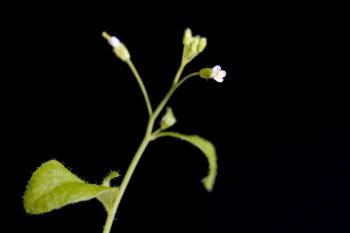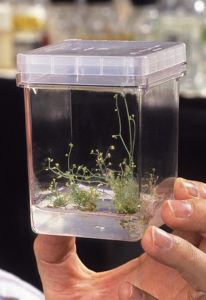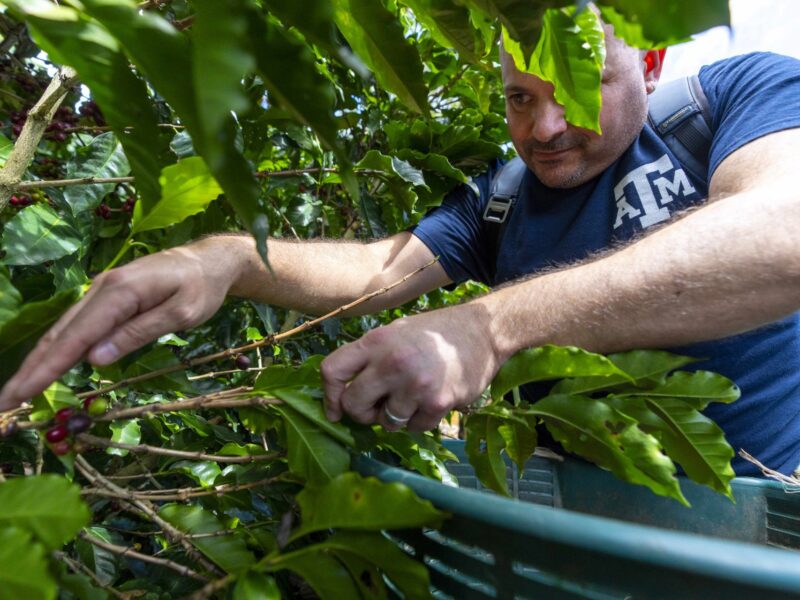Plant Science Discovery May Help Treat Allergies And Immune Deficiencies

A collaboration led by Texas A&M AgriLife researchers has identified an early immune response step that could have broad-ranging implications for crop, animal and human health.
The work could lead to positive impacts in both agriculture and medicine by uncovering new ways to improve immune responses, like treating allergies and immune deficiencies.
“We discovered a fine-tuned mechanism for how the host recognizes microbial components and quickly activates the immune response,” said Libo Shan, the study’s corresponding author and director of the Institute for Plant Genomics and Biotechnology, Texas A&M AgriLife Research. “It’s a phenomenon that is conserved in plants, humans and animals.”
The results of the study were published in the scientific journal Nature on May 14. Coauthors included Ping He, professor in the Texas A&M Department of Biochemistry and Biophysics, and colleagues from Ghent University in Belgium, the University of Missouri-Columbia, Oregon State University and St. Jude Children’s Research Hospital in Memphis. Grants from the National Institutes of Health, the National Science Foundation and the Robert A. Welch Foundation supported the research.
Two types of immune responses

Humans constantly come across disease-causing germs, but we can fight off most of them. In fact, we are born with the ability to defend against a broad range of bacteria, viruses and fungi.
This part of our immune defense, known as innate immunity, also exists in plants and animals. It kicks in minutes after our cells perceive a microbe. A few days later, another level of defense, the adaptive immune system, also builds up. This level of defense occurs in animals and humans.
The innate immune system can be ineffective and unable to fight off diseases, or it can overreact in different ways that are detrimental to good health.
Because the building blocks of innate immunity are conserved across species, Shan and her collaborators decided to conduct their study on a small model plant, Arabidopsis, that is easy to grow and manipulate genetically.
Creating a new paradigm
The team performed cellular, biochemical, genetic and transgenic experiments on Arabidopsis, following clues from their previous work. The results paint a picture of the very first steps of Arabidopsis’ immune response to a bacterial infection.
To understand that picture, imagine soldiers steadfastly watching for attackers from a castle wall. If invaders attack, the soldiers take them prisoner and send a message to the king. This message is the first response to an imminent invasion.
Something similar happens in an Arabidopsis cell. Specialized proteins at the cell wall “watch” for evidence of invasion. When they detect a part of a bacterium’s swimming mechanism, a flagellum, they grab the flagellum. To send a message to the “king,” or the cell nucleus, the “soldiers” use different approaches. One approach, according to the study, is to attach a small protein, ubiquitin, to a messenger protein called BIK1.
When the signal is relayed to the cell nucleus, the message is deciphered. Reinforcements are sent to the cell wall and beyond.
“This immediate response allows the cell to quickly respond by mobilizing a signaling relay and cellular energy and making metabolic changes,” Shan said.
Agricultural and human applications
“Our study fills a critical gap in the early signal transduction step,” Shan said. “So, from both the agricultural perspective and the human health perspective, this discovery holds potential for strategic development.”
The rapid signal the team discovered might help monitor the immune response in humans, Shan said. “Our study lays the foundation for screening drug targets involved in ubiquitin modification,” she said.
And in agriculture, the discovery could help breed plants with stronger resistance to a broad spectrum of infections, Shan said.
“This will generate impacts in both agricultural practice and human health, to fine-tune immunity,” she said. “We provided fundamental knowledge contributing to general science advancement.”
This article by Olga Kuchment originally appeared on AgriLife Today.





